Partnering to Expand Job Opportunities for Displaced People in the Kurdistan Region of Iraq
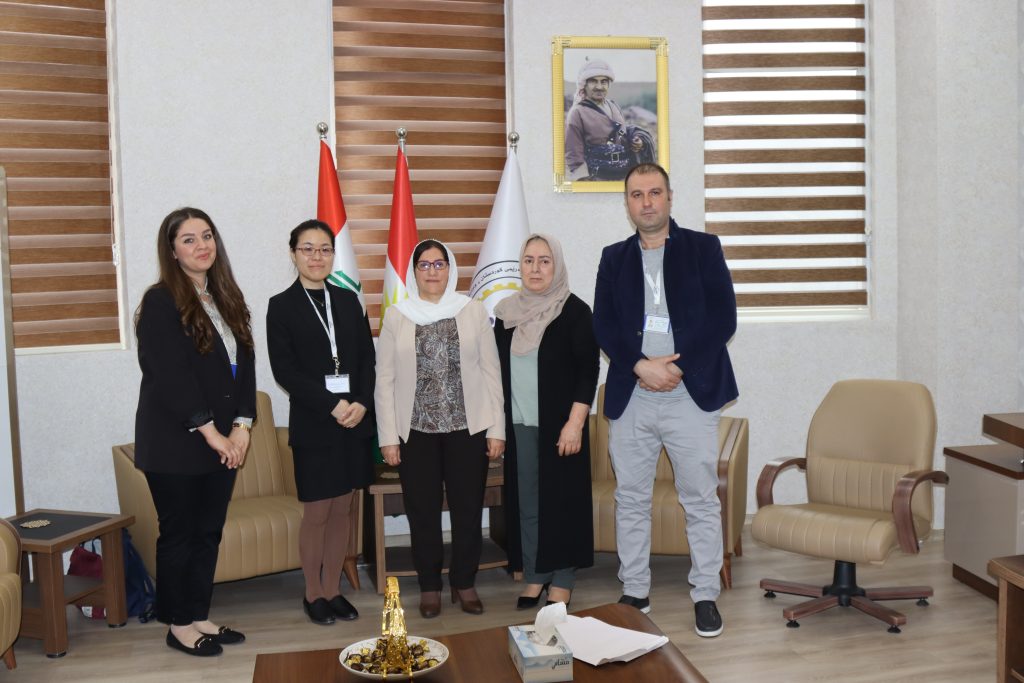
Peace Winds and MoLSA Staff Members
On May 29, Peace Winds teamed up with Kurdistan Regional Government’s Ministry of Labor and Social Affairs (MoLSA) to host the first meeting of the Livelihoods Working Group, a forum bringing together representatives from the government, leading NGOs, UN agencies, and other organizations working in the Kurdistan Region of Iraq (KRI). Representatives of nearly 30 different agencies and groups attended, with almost 20 people taking part in an in-person meeting at the MoLSA headquarters and others attending virtually.
Nearly 870,000 refugees and internally displaced Iraqis have fled wars to seek safety in the KRI. These include Syrians who left during their country’s civil war, Iraqis of Arab and Yezidi descent who fled the Islamic State, and many others. Simply providing them with food, supplies, and services is not enough to help them rebuild their lives. Instead, truly empowering displaced people involves creating pathways for them to get good jobs and contribute to local economies. With that goal in mind, Peace Winds has begun working with MoLSA and others to help refugees and internally displaced people through livelihoods programs.
The May 29 meeting was held as part of a new MoLSA-Peace Winds partnership that is designed to encourage much-needed collaboration on livelihoods programs after the UN cluster system ended in Iraq. It brings together government agencies, the international/national NGO sector, the private sector, and others to more effectively work together on livelihood issues that pertain to refugees and displaced people. At monthly meetings, group members will continue to participate in strategic discussions, knowledge sharing, and coordinated efforts to connect vulnerable populations with employment opportunities.
At the first Livelihood Working Group meeting, attendees discussed the opportunities and challenges that refugees and displaced persons face in integrating into society and the workforce. They also spoke about the need to bridge the gap between potential employers and trainees after they complete vocational training and ways to increase employment opportunities in growing fields, such as the digital economy, in a way that is mutually beneficial for employees, employers, and the KRI economy.
In conjunction with Peace Winds’ existing livelihood efforts, this partnership and the Livelihood Working group mark a significant milestone in our efforts to empower Syrian refugees, displaced Iraqis, and others in need. Our workshops and tool centers, vocational training courses, and cash-for-work program are already creating opportunities for refugee camp residents in Erbil and Duhok. Beneficiaries can borrow tools free of charge; take courses on construction, plumbing, household repair/maintenance, and other vocational skills; and earn wages by working as laborers for accessibility upgrades to their own shelters or their neighbors’, as well as nearby public facilities. Now, the Livelihood Working Group will help Peace Winds and other aid organizations take the next step toward further developing these programs by connecting qualified applicants with employers and work opportunities.
As we kick off this new chapter, we are grateful for the leadership and cooperation of MoLSA and the 20+ NGOs who are expected to continue to participate in the working group discussions. Thank you also to the U.S. Department of State: Bureau of Population, Refugees, and Migration and the U.S. Consulate General Erbil for funding and supporting Peace Winds’ work with Syrian refugees in Iraq. We look forward to empowering even more vulnerable communities through training and employment opportunities.
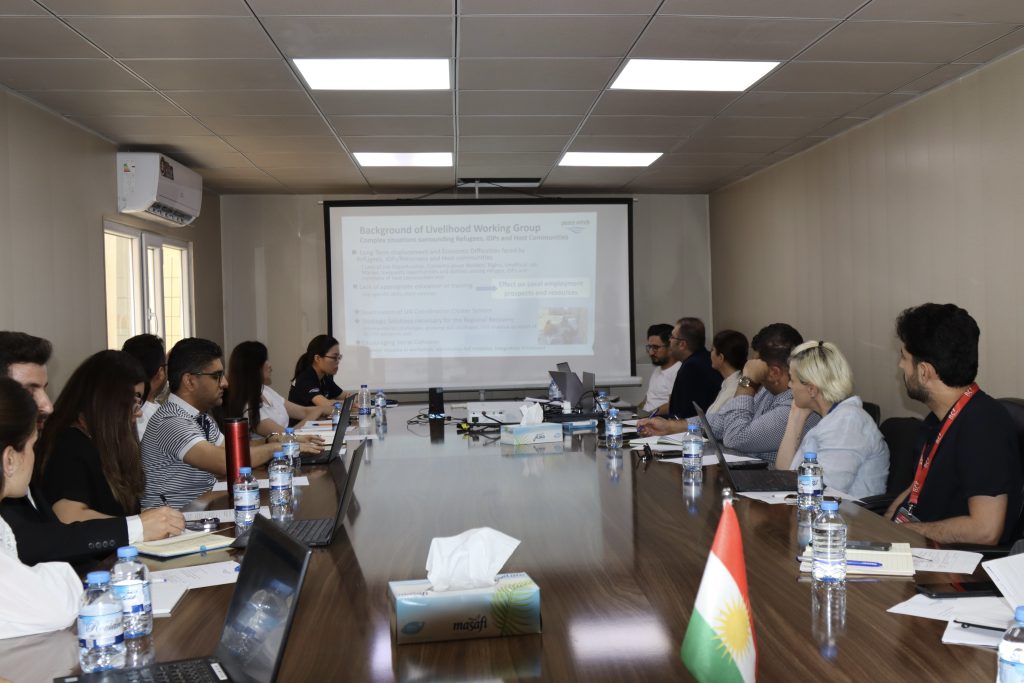
Livelihood Working Group meeting
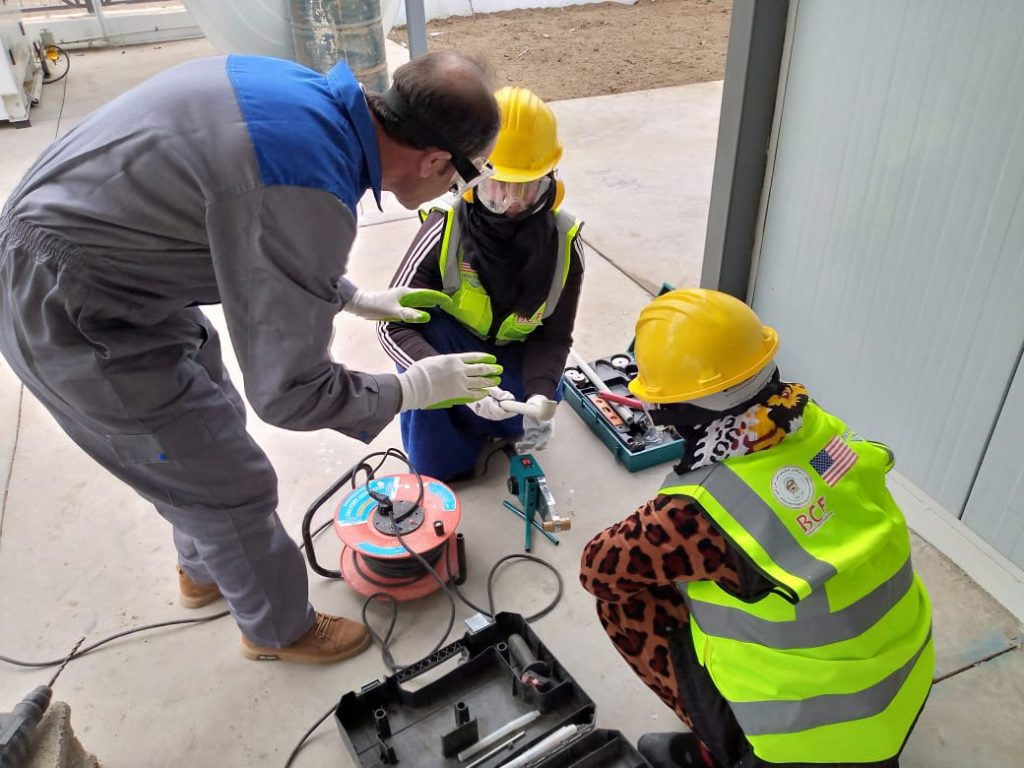
Refugees take a tool center training course in Duhok, Iraq
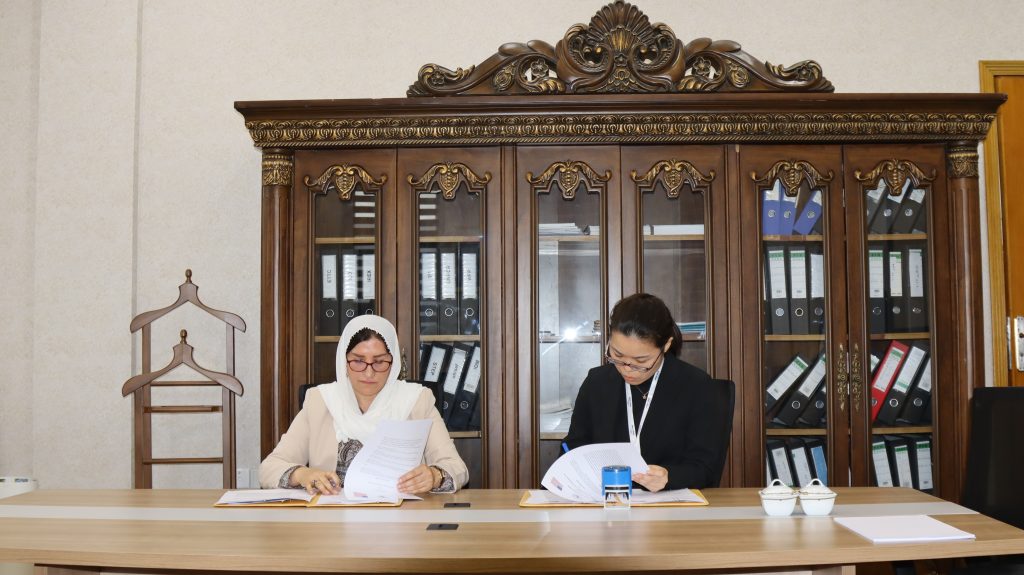
Peace Winds and MoLSA sign partnership agreement
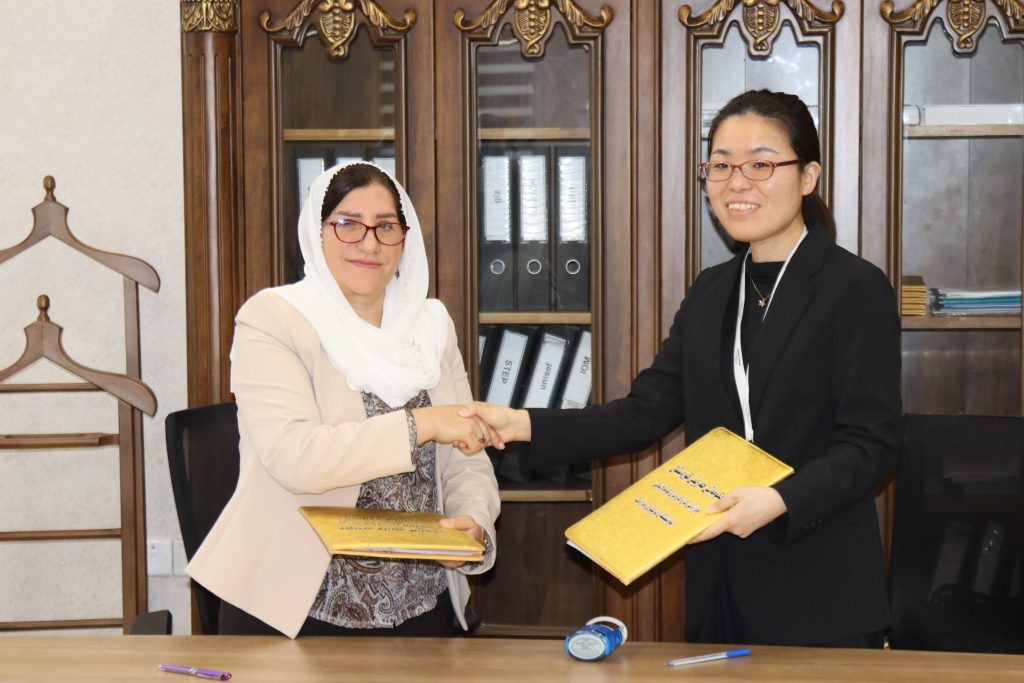
Peace Winds and MoLSA representatives